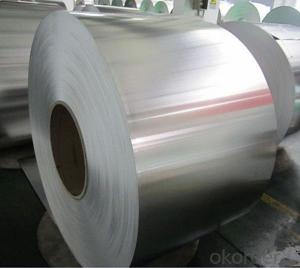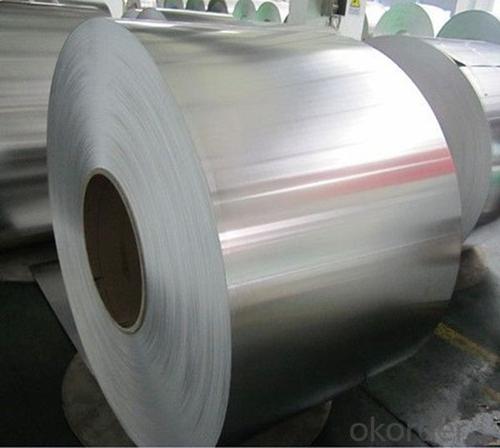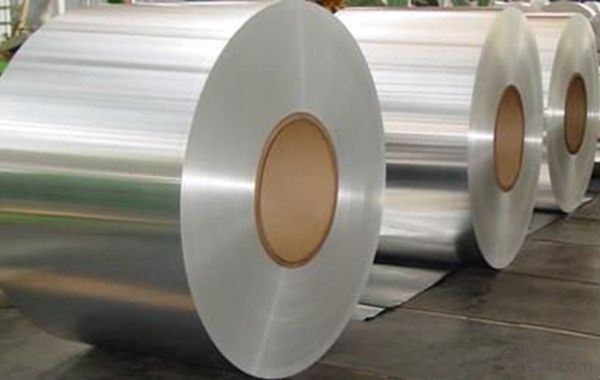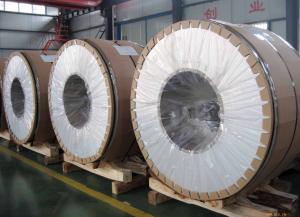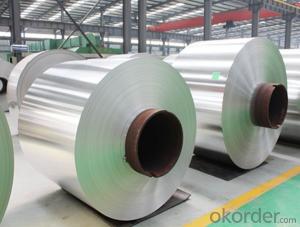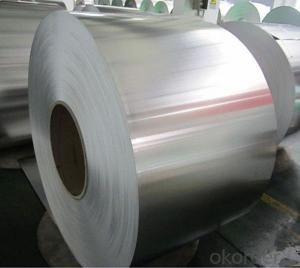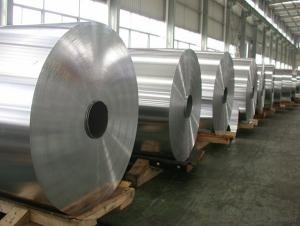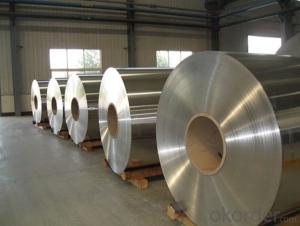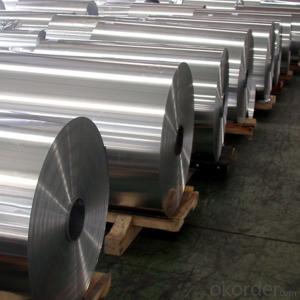Mill Finish Aluminum Coil Metal 5005 China Factory Direct Supply for Lowes
- Loading Port:
- Shanghai
- Payment Terms:
- TT OR LC
- Min Order Qty:
- 5 m.t.
- Supply Capability:
- 1000 m.t./month
OKorder Service Pledge
OKorder Financial Service
You Might Also Like
Specification
1. Specification of Mill Finish Aluminum 5005 China Factory Direct Supply
Alloy Number | AA5XXX |
Temper | H12, H14, H16, H18, H22, H24, H26, H32, HO, F |
Thickness | 0.1mm – 500mm |
Width | 10mm- 2200mm |
Standard | GB/T3880-2006, ASTM, ISO, EU standard |
2. Application of Mill Finish Aluminum 5005 China Factory Direct Supply
(1).Interior: wall cladding, ceilings, bathrooms, kitchens and balconies, shutters, doors...
(2).Exterior: wall cladding, facades, roofing, canopies, tunnels,column covers , renovations...
(3).Advertisement: display platforms, signboards, fascia, shop fronts...
3. Feature of Mill Finish Aluminum 5005 China Factory Direct Supply
Surfact Quality :
Be free from Oil Stain, Dent, Inclusion, Scratches, Stain, Oxide Dicoloration, Breaks, Corrosion, Roll Marks, Dirt Streaks and other defect which will interfere with use,
Mechenical Property:
Chemical Composite and Mechanical Property
4. Certificate:
SGS and ROHS(if client request, paid by client), MTC(plant provided), Certificate of Origin(FORM A, FORM E, CO), Bureau Veritas and SGS (if client request, paid by client), CIQS certificate
5. Image of Mill Finish Aluminum 5005 China Factory Direct Supply
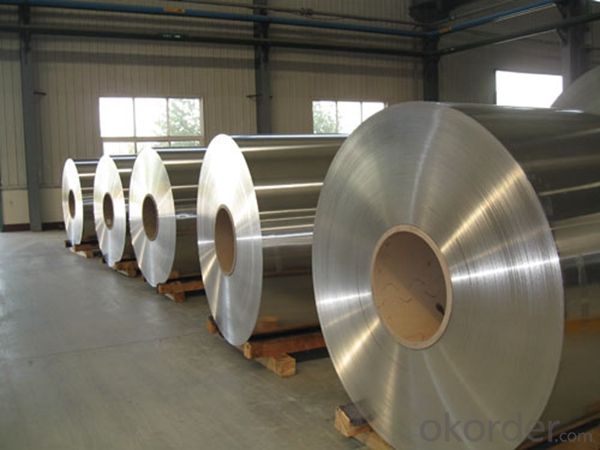
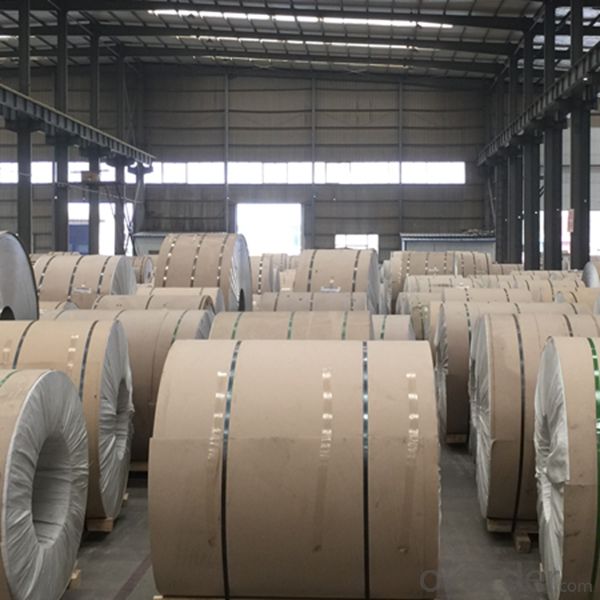
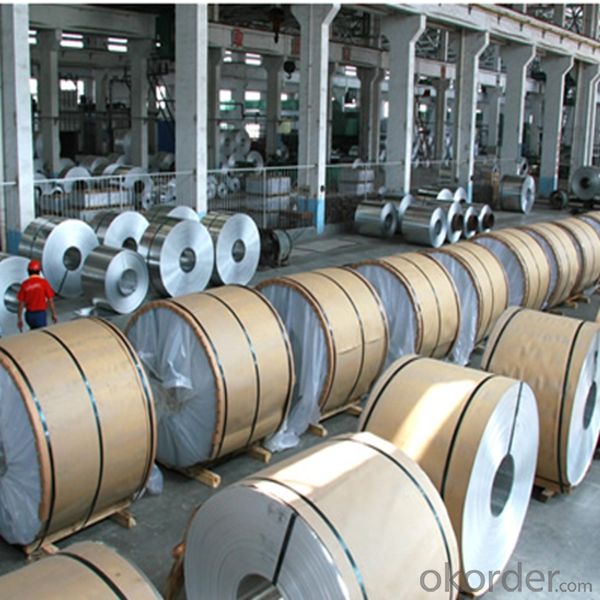
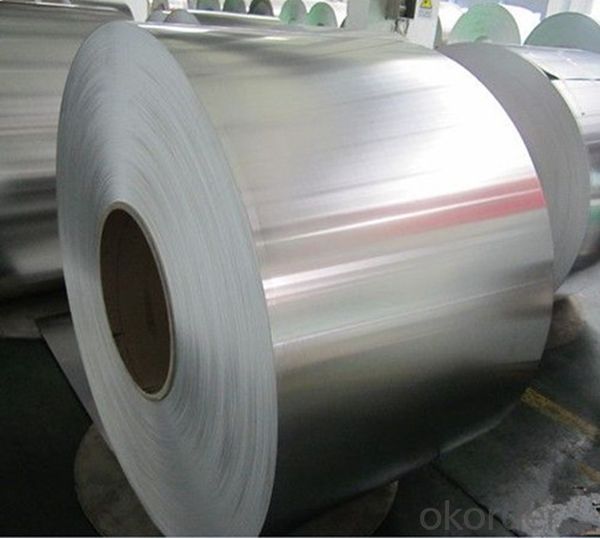
6. Package and shipping of Mill Finish Aluminum 5005 China Factory Direct Supply
First, plastic cloth with drying agent inside; Second, Pearl Wool ; Third, wooden cases with dry agent , fumigation wooden pallets, aluminum surface could cover blue PVC film
7. FAQ
1) What is the delivery time?
Dpends on actual order, around 20 to 35 days
2)What is the QC system:
We have QC staff of 20 persons and advanced equipment, each production is with MTC traced from Aluminum ingot lot.
3) What market do you mainly sell to?
Australia, America, Asia, Middle East, Western Europe, Africa etc
- Q: Are aluminum coils suitable for architectural facades?
- Yes, aluminum coils are suitable for architectural facades. They are lightweight, durable, corrosion resistant, and can be easily formed into various shapes and sizes. Additionally, aluminum coils offer a wide range of finishes and colors, making them a versatile choice for architectural facades.
- Q: How do I deal with too much aluminum powder when the aluminum strips are divided?
- Because of low maintenance costs, the former favored by enterprises, accounting for more than 90% of all dust removal systems, but often there will be a problem: ventilation and dust removal system is not strictly in accordance with the specifications to do, resulting in dust accumulation.
- Q: Explain the differences between aluminum coil and aluminum sheet in a few sentences.
- <p>Aluminum coil and aluminum sheet are both flat aluminum products but differ in form and usage. Aluminum coil is a long, continuous roll of aluminum that can be easily unrolled and cut to length, making it ideal for manufacturing processes where the material needs to be fed through machines. It is commonly used in industries such as construction, packaging, and automotive for applications like roofing, siding, and food packaging. Aluminum sheet, on the other hand, comes in flat, rectangular pieces with specific dimensions and is typically thicker than coil. It is used in applications where a solid, non-continuous piece is required, such as in signage, furniture, and decorative elements. The thickness and surface finish can also vary between coils and sheets, with sheets often being available in a wider range of finishes and thicknesses.</p>
- Q: Is it safe or practical to use an electric iron as a heat source for an aluminum coil?
- <p>Using an electric iron to heat an aluminum coil is not advisable. Electric irons are designed to heat their own plates for ironing clothes, not to transfer heat to other materials like aluminum coils. The high temperature of an iron could damage the coil and potentially cause a fire hazard. Moreover, aluminum has a high thermal conductivity, which means it would dissipate heat quickly, making it inefficient to use an iron for this purpose. Always use heating elements specifically designed for the material you intend to heat.</p>
- Q: Are aluminum coils resistant to chemicals?
- Yes, aluminum coils are generally resistant to chemicals. Aluminum has excellent corrosion resistance and can withstand exposure to various chemicals, making it a suitable choice for applications that involve chemical processing or storage.
- Q: What is the typical thickness of an aluminum coil?
- The thickness of an aluminum coil can differ depending on its intended purpose and use. Generally, aluminum coils can have a thickness ranging from 0.006 inches (0.15 mm) to 0.25 inches (6.35 mm). Thinner coils are frequently utilized for lightweight applications like packaging materials, whereas thicker coils are commonly found in industries such as construction, automotive, and aerospace, where strength and durability are crucial. It is worth mentioning that the precise thickness requirements may vary depending on the unique needs and specifications of the project or product being manufactured.
- Q: How are aluminum coils processed and fabricated?
- Aluminum coils are processed and fabricated through a series of steps to shape them into desired forms for various applications. The process typically involves the following steps: 1. Coil Manufacturing: Aluminum coils are initially manufactured by melting aluminum ingots and casting them into large, flat coils. These coils are then rolled through a series of rolling mills to achieve the desired thickness and shape. 2. Coil Cleaning: Once the coils are rolled, they undergo a cleaning process to remove any dirt, oil, or other impurities that may have accumulated during manufacturing. This is typically done using chemical cleaning agents or mechanical scrubbing techniques. 3. Coil Annealing: Annealing is a heat treatment process where the coils are heated to a specific temperature and then slowly cooled. This process helps to relieve internal stresses, improve the coil's mechanical properties, and enhance its formability. 4. Coil Slitting: In this step, the large coils are cut into narrower strips or sheets of desired widths. This is done using a slitting machine, which can cut multiple strips simultaneously. Slitting allows for better utilization of the material and ensures that the coils are in the required dimensions for further processing. 5. Coil Surface Treatment: Aluminum coils often undergo surface treatments to enhance their appearance, improve corrosion resistance, or provide additional protection. Common surface treatments include anodizing, painting, or applying a protective coating. 6. Coil Fabrication: Once the coils are cleaned, annealed, and treated, they can be further processed into various shapes and forms. Common fabrication techniques include stamping, bending, deep drawing, roll forming, welding, and machining. These processes allow the aluminum coils to be transformed into components such as sheets, plates, tubes, profiles, or intricate designs. 7. Quality Control: Throughout the entire processing and fabrication stages, strict quality control measures are implemented to ensure that the final products meet the required specifications and standards. This involves regular inspections, testing for mechanical properties, dimensional accuracy, surface quality, and other relevant parameters. Overall, the processing and fabrication of aluminum coils involve a combination of metallurgical, mechanical, and chemical processes to achieve the desired final product. These processes aim to enhance the properties of the aluminum, improve its formability, and create a wide range of products for various industries such as automotive, construction, aerospace, and packaging.
- Q: Is it safe and practical to use aluminum coil in cooking processes?
- <p>Aluminum coil can be used for cooking, but it's important to consider the specific type and context. Aluminum foil, for example, is commonly used for cooking in various forms such as wrapping food for baking or grilling, or lining baking sheets to prevent sticking. However, aluminum cookware is less common due to concerns about aluminum's potential health effects and its reactivity with certain foods. When using aluminum coil for cooking, ensure it's food-grade and avoid using it with acidic or alkaline foods, as this can lead to leaching of aluminum into the food. Always check the manufacturer's guidelines for safe use.</p>
- Q: This question asks for the distinctions between a single-layer aluminum coil and a multilayer aluminum coil, focusing on their structure and potential applications.
- <p>A single-layer aluminum coil consists of a single sheet of aluminum wound into a roll, while a multilayer aluminum coil is made up of multiple sheets of aluminum stacked and wound together. Single-layer coils are simpler in structure and are often used for applications requiring less complexity, such as basic insulation or simple wrapping. Multilayer coils, on the other hand, offer increased strength and can provide better insulation properties due to the multiple layers. They are also used in applications where space is limited, as they can be more compact. Additionally, multilayer coils can be tailored for specific heat transfer or electrical conductivity needs by varying the thickness and composition of the layers.</p>
- Q: What are the fire-resistant properties of aluminum coils?
- Due to its inherent characteristics as a metal, aluminum exhibits excellent fire-resistant qualities when formed into coils. With a melting point of 660 degrees Celsius (1220 degrees Fahrenheit), aluminum can endure high temperatures without melting, thereby making aluminum coils resistant to fire hazards. Furthermore, unlike certain other metals, aluminum does not produce flammable gases when exposed to fire. This non-combustible attribute prevents the fire from spreading and minimizes the potential for fire-related damages. Additionally, due to its low thermal conductivity, aluminum does not efficiently conduct heat. Consequently, aluminum coils do not facilitate the transfer of heat from one area to another, which aids in containing and controlling the fire's spread. Moreover, aluminum coils frequently undergo a protective coating process to enhance their fire resistance. These coatings, composed of materials like polyvinylidene fluoride (PVDF) or polyester, create an additional barrier against fire and heat. Engineered to withstand extreme temperatures while maintaining their integrity, these coatings further bolster the fire-resistant qualities of aluminum coils. In summary, aluminum coils possess exceptional fire-resistant characteristics owing to their high melting point, non-combustible nature, low thermal conductivity, and protective coatings. These attributes make aluminum coils a dependable choice for applications where fire safety is paramount, such as in building construction, electrical wiring, and transportation industries.
Send your message to us
Mill Finish Aluminum Coil Metal 5005 China Factory Direct Supply for Lowes
- Loading Port:
- Shanghai
- Payment Terms:
- TT OR LC
- Min Order Qty:
- 5 m.t.
- Supply Capability:
- 1000 m.t./month
OKorder Service Pledge
OKorder Financial Service
Similar products
Hot products
Hot Searches
Related keywords
